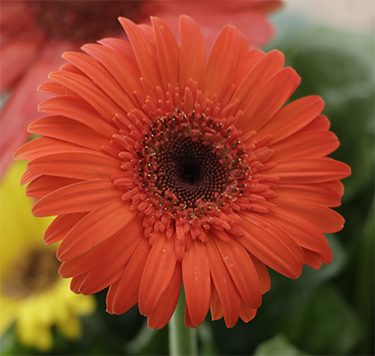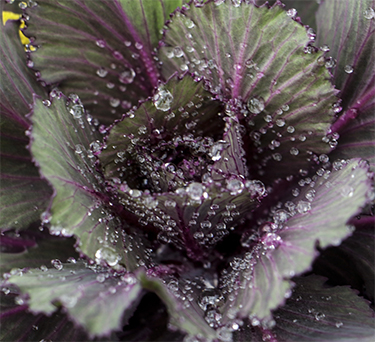Urban Farming Taking Root at SAC
February 8, 2019
The greenhouse between the Chance Academic Center and the Nursing & Allied Heath complex is alive and bursting with activity. Plastic trays are filled with thousands of plants just beginning to bloom. Moving around inside the greenhouse, Ariana Fuentes, farm and garden coordinator, and Cecile Parrish, urban farm manager, both with the William R. Sinkin Eco Centro, tend to the blossoming plants – marigolds, zinnias, tomatoes, ornamental cabbage and much more.
 In a few weeks, many of the plants will soon be relocated around campus and the Sinkin Eco Centro. Then new seedlings will take their place in the greenhouse to begin the next crop of herbs, vegetables, and flowers.
In a few weeks, many of the plants will soon be relocated around campus and the Sinkin Eco Centro. Then new seedlings will take their place in the greenhouse to begin the next crop of herbs, vegetables, and flowers.
In many ways the flourishing greenhouse is a good example of the new-found energy in the Sinkin Eco Centro urban farming program. Fuentes and Parrish are working together to expand the range of benefits the program has to offer.
One of the main projects for the new year will be to landscape the campus with native plants that are both drought resistant but can withstand heavy rains as well. In addition to the native plants, pollinator plants will be grown to attract bees, butterflies and other insects.
The garden in back of the Sinkin Eco Centro parking lot will be redesigned to increase food production. In the fall, fresh produce will be made available to the Student Advocacy Center along with classes on how to cook the vegetables.
Partnering with Other Organizations
 The program has started working with other organizations on several projects. “We are going into partnership with the San Antonio Housing Authority on a couple of acres on the East side that we want to turn into an educational urban farm space for the city,” said Parrish. The space will be used to teach others how to garden so they can raise food for themselves.
The program has started working with other organizations on several projects. “We are going into partnership with the San Antonio Housing Authority on a couple of acres on the East side that we want to turn into an educational urban farm space for the city,” said Parrish. The space will be used to teach others how to garden so they can raise food for themselves.
The space will also be used to raise plants for papermaking and dyes for the Southwest School of Art. The urban farming project will supply the plant-based art material and the School of Art will sponsor art classes at the Sinkin Eco Centro.
And they are also working with The Human Path, a survival and sustainability school, to grow medicinal plants for their classes as well.
Education at the Core
At the heart of all of these projects is a mission to educate. Fuentes and Parrish intend to hold classes throughout the year to teach community members how to garden. Examples of different gardening techniques will be display at Sinkin Eco Centro.
They also want to get the SAC campus actively involved.
“We want to work with students on campus. We want to get their interest and maybe transform their lives and partner with them anyway we can,” said Parrish. Currently, the Sinkin Eco Centro has work study opportunities for students who want to learn more about farming and gardening. The center is also inviting students to consider doing service learning projects and research projects based on urban farming.
“We want to inspire people to eat healthier and to get connected to the earth and the environment they are in,” added Fuentes.
–SAC–
